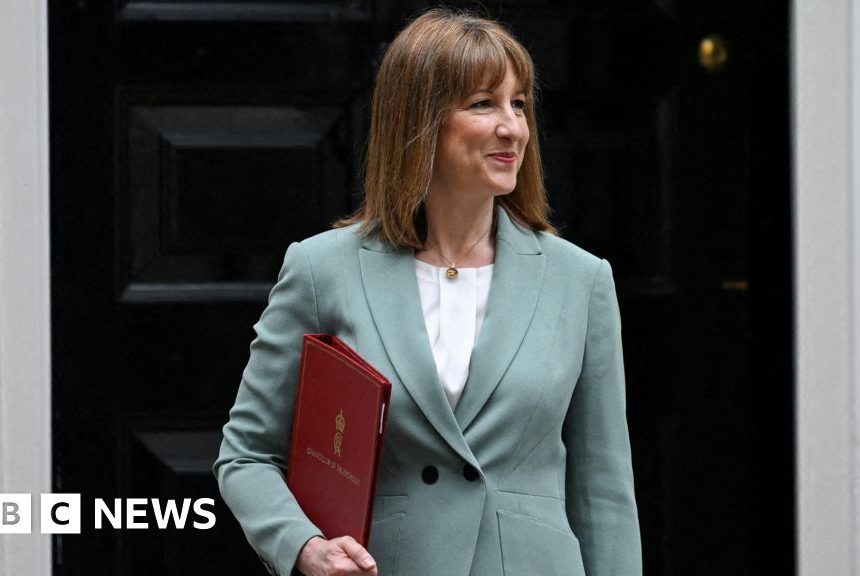There might be three weeks to go until Rachel Reeves presents her budget, but in the topsy-turvy wonderland of the budget process, the real drama happens in the next few days. The chancellor will have to submit her major decisions to her official forecaster, the Office for Budget Responsibility (OBR), this week. This means no more discussion, debate and seat-switching between No 10 and No 11 – once the spreadsheet is sent it is rarely changed. I hope that it includes an increase in the basic rate of income tax, something we haven’t seen since the 1970s. It is hard to see how else Reeves can navigate the three trials of this budget: fixing the bottom line, supporting growth and distributing the pain fairly.
First, the hole in the public finances must be filled. New Resolution Foundation analysis estimates that borrowing is on course to be £14bn higher than it was in March – enough to break her fiscal rules. That’s smaller than some have speculated but still leaves a mountain to climb. And the chancellor will need to do more than match this shortfall – and build a far stronger financial buffer against her fiscal rules – if she is to reassure the markets and avoid coming back for even more tax rises or spending cuts at the next budget. Doing so would be unusual – typically chancellors under-react to bad economic news and overreact to good news. Only one budget in the past 14 years has responded to a worse underlying forecast by more than making up for the deterioration (George Osborne, in 2012).
Second, the budget must be pro-growth. The biggest cause of higher borrowing is expected to be the judgment by the OBR that the UK’s post-financial-crisis stagnation will persist. The government is right to try to find policy that might turn this around. But even the OBR’s more pessimistic view of growth is likely to be better than we’ve seen since the pandemic. So, as the Queen of Hearts said to Alice, the OBR will say to the chancellor: “It takes all the running you can do, to keep in the same place.”
Third, the chancellor will have to distribute the pain fairly. Families have barely emerged from a cost of living crisis. Food prices remain high and energy bills are rising just as the temperature falls. While we no longer have “crisis” levels of inflation, that crisis was scarring and inflation is still high, at almost double its target rate. So, a budget that lowers rather than stokes inflation is good politics and good economics. With inflation already uncomfortably high, the Bank of England might well respond to tax measures that further increase prices with higher interest rates, raising the interest payments that both households and the government must make. So forget any increases to VAT at this budget.
That leaves the chancellor needing to find around £25bn of tax rises, according to our analysis, and in a way that doesn’t damage investment, and that supports growth.
Clearly, increasing income tax can help raise money. On its own, each 1p rise in income tax raises £10bn. Preferably, if income tax was increased 1p while employee national insurance was cut by the same amount, then pay packets would be unaffected, while everyone who doesn’t pay national insurance would see a rise. There are a fair chunk of those people and so substantial sums can still be raised this way.
Those who would pay more include pensioners, who should bear some of the cost of this budget. After all, they have been one of the biggest beneficiaries from the increases in public spending. An astonishing £9 in every £10 of the additional day-to-day departmental spending from this Labour government went to the NHS, a public service used disproportionately by older people. Yet pensioners currently pay lower rates of tax on their income than those in work. An income tax rise would only affect those who have enough to pay it. The bumper rise in the basic state pension next year would still leave all pensioners on less than £40,000 a year better off, even after a 2p income tax rise. Nor does this unreasonably punish those who saved, as savings into a pension can be made free of income tax.
In thinking about the effects of tax rises, we must avoid comparing them to a fantasy world in which no pain is needed. But the economic case against raising income tax – reducing the enthusiasm of employees to earn more – can be mitigated by reducing national insurance at the same time. Landlords would face higher tax bills, but with the total supply of housing unlikely to be affected we should not expect a big change in rents. The tax advantages of self-employment over payrolled employment, now at a record high, would be reduced. Tackling this distortion would be good for growth.
We must stop hoping we will magically wake up from the nightmare of a country beleaguered by low growth. There is no cheap route to world-class universal healthcare in an ageing society. It’s time to face reality. None of this is politically easy, and manifesto pledges should not be broken lightly. But an income tax rise would be a response sufficiently serious to meet the moment Britain faces.
after newsletter promotion


